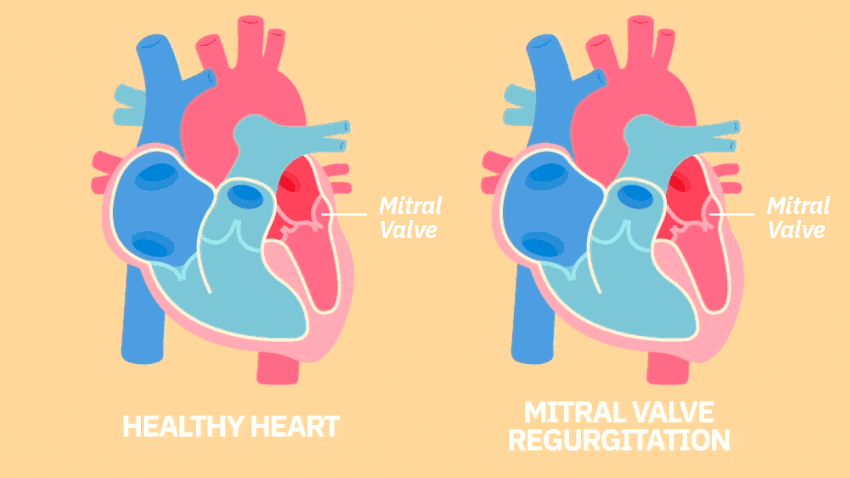Having your mitral valve repaired before symptoms become severe can increase your longevity. Here’s one patient’s story.
5:00 AM
Author |

When Thomas Kimble discovered he would need to have his mitral valve repaired, he was happy to get a recommendation from his Florida cardiologist for a surgeon highly skilled in minimally invasive procedures.
This eased the decision for the Florida resident to move forward, even though, like many individuals, he wasn't experiencing symptoms of his mitral valve regurgitation, which may include fatigue, shortness of breath, chest pain and an irregular heartbeat.
In fact, just prior to his November 2020 surgery with Michigan Medicine Frankel Cardiovascular Center surgeon Gorav Ailawadi, M.D., the 68-year-old was hiking at 11,000 feet in Breckinridge, Colorado. "I may have felt a little fatigued, but I attributed it to my age," he says.
How the mitral valve works
The body's mitral valve controls the flow of blood from the lungs through the pulmonary veins to the heart and eventually to the body. If its flaps (or leaflets) don't close properly or don't open completely, the heart has to work harder, which can lead to atrial fibrillation, blood clots, stroke and congestive heart failure.
For patients like Kimble with mitral valve regurgitation, the flaps of the valve fail to close completely, causing blood to travel backward into the left atrium of the heart. Without treatment, the heart muscle can become weak or damaged.
A telltale sign
An incidental diagnosis of a heart murmur is often the telltale sign of mitral valve disease, says Ailawadi. This is why regular checkups are critical.
"Having a valve repaired at a center of excellence before symptoms worsen is a smart decision for many patients and can increase life expectancy," he says. "There are often subtle changes in the size of the heart that signal it is working overtime even before there are symptoms. Whenever possible, it's better to repair the mitral valve rather than replace it."
MORE FROM MICHIGAN: Sign up for our weekly newsletter
Mitral valve repair may help you to avoid complications that can occur with mitral valve replacement, including the risk of blood clots with mechanical valves. For this reason, patients who undergo a replacement procedure need to be on blood-thinners for the rest of their lives. They may also face the risk of a biological tissue valve failing over time.
Being in good physical condition when undergoing a mitral valve repair procedure is also beneficial in several ways, including:
-
Reduced risk of complications after surgery
-
Quicker recovery
-
Better preservation of heart function
-
Reduced risk of stroke
-
Reduced risk of atrial fibrillation
A trend toward less invasive procedures
"We can repair mitral valves using different treatment methods, including open-heart, minimally invasive and transcatheter procedures," says Ailawadi, noting that more and more minimally invasive and transcatheter procedures are being performed at Michigan Medicine over open-heart surgeries.
A minimally invasive mitral valve procedure involves small incisions between the ribs on a patient's right side to access and repair or replace the valve.
In a transcatheter procedure, the heart valve is accessed via a catheter through a patient's blood vessel, typically the femoral vein.
Kimble was happy to know he would avoid the need for open-heart surgery.
Like Podcasts? Add the Michigan Medicine News Break on iTunes or anywhere you listen to podcasts.
"The patient had severe mitral regurgitation and his heart was starting to dilate," says Ailawadi, but his valve and chordae, which had ruptured, could be repaired without the need to open his breastbone. Chordae are thin, cordlike tendons that support the mitral valve leaflets as they open and close. When they become stretched or broken, as in Kimble's case, the valve cannot close properly.
A positive experience and outcome
Though drawn from his home in Florida by the reputation of Ailawadi as an expert in minimally invasive surgery, Kimble was equally impressed by what he describes as a "superb" program at the Frankel Cardiovascular Center.
In support of this, Michigan Medicine was one of the first five centers in the country to be designated as a Mitral Valve Repair Reference Center by the American Heart Association and the Mitral Foundation. This designation is awarded to hospitals that have shown excellence in clinical outcomes and performance in mitral valve repairs.
"From pre-op testing to surgery, everything was superb, even during COVID," Kimble says. "Everything was highly organized, which added to my confidence."
Kimble spent five days in the hospital after surgery, with light activity restrictions for four weeks afterward.
Today, nearly five months since his surgery, Kimble is eager to get back to the gym for weight lifting and spinning classes.
"I want to get ready for a more active summer and spending time with our four grandkids."
Kimble and his wife, Janet, are thankful for an early intervention that allowed the repair versus replacement of his mitral valve.
"The entire experience has been fantastic," he says. "My valve was repaired and I was pleased with how it went. I highly recommend Michigan Medicine and Dr. Ailawadi. I'm grateful for his skill set. I'm referring people already."

Explore a variety of health care news & stories by visiting the Health Lab home page for more articles.

Department of Communication at Michigan Medicine
Want top health & research news weekly? Sign up for Health Lab’s newsletters today!





